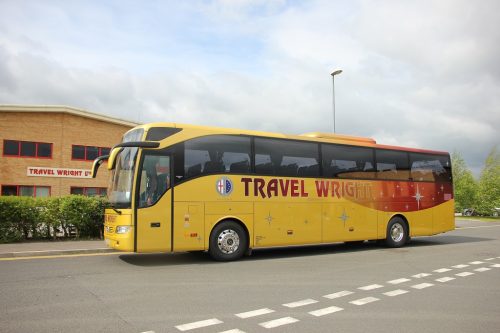
Local Government spending cuts continue to have a negative impact on many family-owned operators around the country. David Wright explained to Andy Izatt how his company, Travel Wright of Newark which places considerable importance on its traditional values, has responded to that challenge
Travel Wright was 90 years old in 2016, but the respected operator from Newark run by the fourth generation of the Wright family didn’t feel much like celebrating at the time. While it might be best-known for its smart frontline coaches, local bus operation was and continues to be a valued part of what it does and the impact of local authority cutbacks was being felt. Despite market conditions continuing to be generally difficult, it has subsequently fought back growing other areas of its business. As Director and Tour Manager David Wright explained, having to deal with and overcome adversity is nothing new for a firm that now operates close to 40 vehicles.
“We became a limited company in 2004,” David recalled. “By that time I’d been with the family firm for two decades having first qualified as an accountant, training that gave me valuable insight into how to run the business differently. My younger brother Colin, sister Paula and I all joined at about the same time.
“By the time the limited company was formed our then garage had become a real concern.[…]
What you get with a subscription
- Operator & Supplier Profiles
- Face-to-Face Interviews
- Lastest News
- Test Drives and Reviews
- Legal Updates
- Route Focus
- Industry Insider Opinions
- Passenger Perspective
- Vehicle Launches
- and much more!


